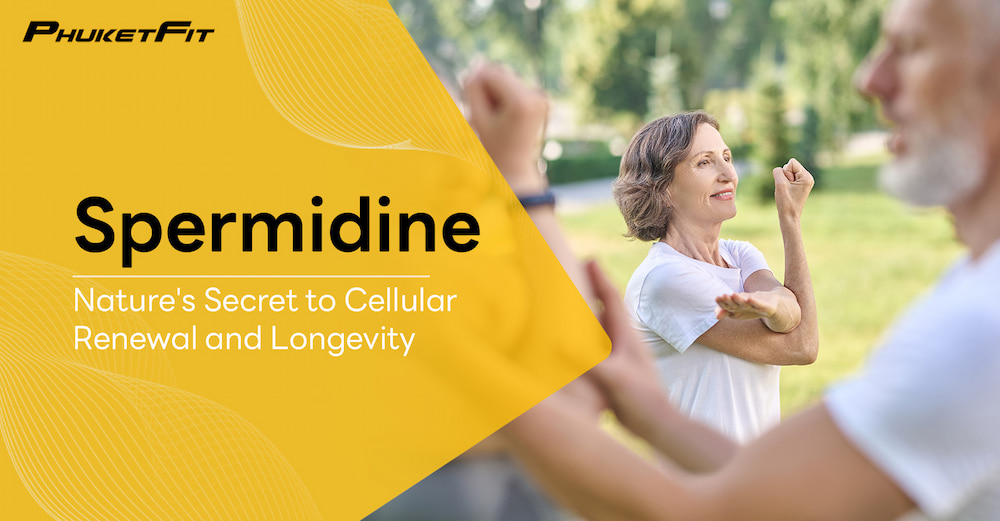
Spermidine: Nature’s Secret to Cellular Renewal and Longevity
In the quest for optimal health and longevity, spermidine emerges as a beacon of hope. This naturally occurring polyamine, found in our cells, could be the key to unlocking prolonged life and superior health. Scientists and health enthusiasts alike are turning their attention to spermidine because of its potential to rejuvenate cells and ward off the effects of aging.
The Science of Spermidine
Spermidine is more than just a component found within our cells; it’s a catalyst for vital cellular functions. Its role extends from promoting cell growth and differentiation to ensuring cell survival. Among its many benefits, spermidine’s ability to stimulate autophagy stands out. Autophagy, the body’s way of cleaning out damaged cells to regenerate newer, healthier cells, is crucial for maintaining cellular health and longevity.
Spermidine achieves this by inhibiting enzymes that suppress autophagy and activating proteins essential for this cellular cleanup process. This not only keeps cells healthy but also significantly impacts overall longevity and health. Research highlighted in Nature demonstrates spermidine’s critical role in this autophagy process, underscoring its importance in cellular health and longevity.
Health Benefits of Spermidine:
Neuroprotective Properties
Spermidine’s journey into the limelight is marked by its potential to safeguard the brain. Research shows it may reduce age-related memory impairment and cognitive decline. This hints at a protective shield against neurodegenerative diseases like Alzheimer’s and Parkinson’s, making spermidine a topic of intense study for its neuroprotective properties.
Enhancing Cardiovascular Health
Heart health is paramount for longevity, and spermidine seems to play a pivotal role here as well. It supports cardiovascular health by protecting heart cells from damage, enhancing heart function, and even reducing blood pressure. These benefits suggest that spermidine could be a powerful ally in maintaining a healthy heart and vascular system. A study published on Semantic Scholar provides evidence of spermidine promoting cardiovascular health, reinforcing its potential in heart health maintenance.
Natural Sources of Spermidine
Spermidine is naturally found in various foods, including aged cheese, mushrooms, soy products, legumes, and whole grains. While it is possible to obtain spermidine from dietary sources, there is debate about whether the amounts found in food are sufficient to promote optimal cellular health and longevity. Some experts believe that supplementation may be necessary, but more research is needed to determine the optimal dosage and safety. Insights from Science suggest that the cellular benefits of spermidine extend beyond dietary sources, highlighting the potential need for supplementation to achieve optimal levels.
Boosting the Immune System
Spermidine doesn’t stop at enhancing our brains and hearts; it also empowers our immune system. By bolstering the function of key immune cells like T cells and natural killer cells, spermidine equips the body with a robust defense mechanism against pathogens and cancer cells. This immune-boosting property not only highlights its role in disease prevention but also underscores the compound’s integral role in maintaining overall health and longevity.
Cancer-Fighting Potential
One of the most promising aspects of spermidine research is its potential in the fight against cancer. Studies suggest that spermidine can trigger autophagy in cancer cells, a process leading to their death, and may inhibit the growth and spread of cancer cells. This remarkable ability to induce autophagy, thereby eliminating cancer cells, positions spermidine as a significant player in cancer research and treatment strategies.
Natural Sources and Supplementation
While spermidine is a naturally occurring compound in our bodies, the question remains: can we get enough spermidine from our diet to enjoy its benefits? Spermidine is found in foods such as aged cheese, mushrooms, soy products, legumes, and whole grains. However, the debate continues on whether dietary sources provide sufficient spermidine for optimal health benefits, leading some experts to suggest supplementation might be necessary.
Current research is aimed at determining the optimal dosage of spermidine supplementation, ensuring safety, and maximizing health benefits. As we navigate through the complexities of dietary sources versus supplementation, it’s clear that spermidine holds great promise for enhancing our health and prolonging our lives.
Conclusion
Spermidine is a promising compound that promotes cellular health and longevity through its ability to stimulate autophagy. While more research is needed to fully understand its health benefits and determine the optimal dosage and safety of supplementation, early findings are encouraging. By incorporating spermidine-rich foods into our diets and staying informed about the latest research, we can take steps towards achieving optimal health and longevity.
